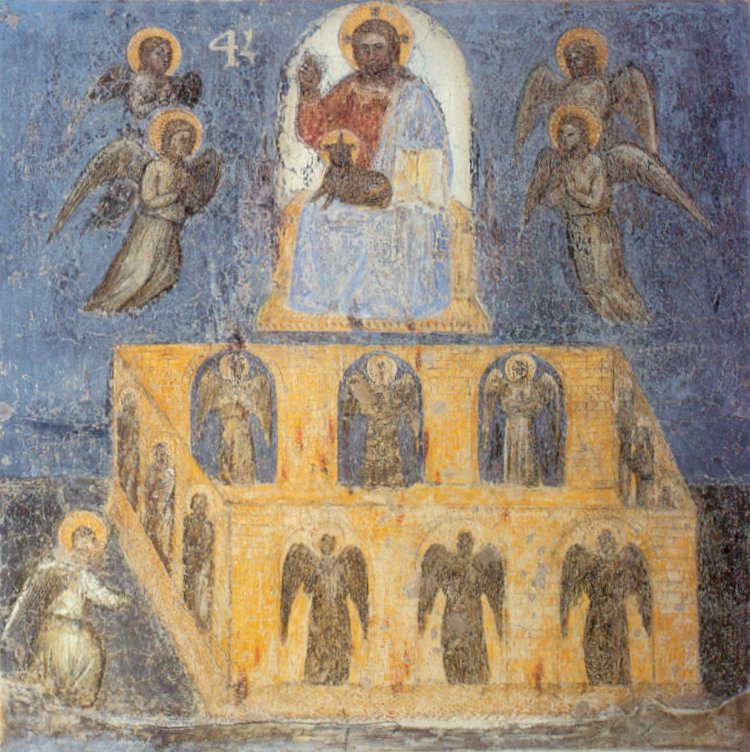
How often do you carefully read the church bulletin or listen to closing announcements? If the answer is “not often” or “never,” then you will probably miss the import of Hebrews chapter 13. The closing words might read like announcements at the close of a service, but they are missional action steps for God’s kingdom’s mission advance. Thomas Long puts it this way:
…the sermon is being followed by the announcements and the “joys and concerns.” As is the case with all good preachers, however, the sermon actually continues. The preaching does not stop when the sermon notes are folded up, and the Christological task does not end when the “minute for mission” begins (Thomas G. Long, Hebrews, Interpretation: A Bible Commentary for Teaching and Preaching {Louisville: Westminster/John Knox Press, 1997}, page 142).
To be honest, it is easy to think at first glance that chapter 13 is a bit anti-climactic. Chapter 12 brings the reader to the heights of the heavenly Mount Zion. Having seen the glory of God in Christ on the mountain top at the height of the author-preacher’s sermon, the descent at the close of the service/sermon with the closing chapter might seem like a real downer. Nothing could be further from the truth. What we find here is the high Christology brought home to people’s lives in the valley below where we daily live. After all, Sunday is only the first day of the week. The sermon had better carry the reader or listener along until week’s end.
The preacher-author’s Christology (doctrine of Christ) is not simply for the lofty mount of transfiguration. Hebrews’ Christology functions just as well on street level and in dining rooms (Hebrews 13:2), prison cells (Hebrews 13:3), bedrooms (Hebrews 13:4), and bank accounts (Hebrews 13:5), not simply in sanctuaries but also outside the city gate (Hebrews 13:12). This being said, here are the closing announcements for missional advance:
In light of Jesus’ love, “let mutual love continue” (Hebrews 13:1; NRSV).
In light of Jesus as our ultimate host and guest, and the account of the angelic visitation in Genesis 18, we must “not neglect to show hospitality to strangers, for by doing that some have entertained angels without knowing it” (Hebrews 13:2; see also 13:16; NRSV).
In light of Jesus as the one who was tortured by the palace guard, “Remember those who are in prison, as though you were in prison with them; those who are being tortured, as though you yourselves were being tortured (Hebrews 13:3; NRSV).
In light of Jesus’ holiness and priestly work of purification from sin, “Let marriage be held in honor by all, and let the marriage bed be kept undefiled; for God will judge fornicators and adulterers” (Hebrews 13:4; NRSV).
In light of God’s provision through Jesus, “Keep your lives free from the love of money, and be content with what you have; for he has said, ‘I will never leave you or forsake you’” And again, “So we can say with confidence, ‘The Lord is my helper; I will not be afraid. What can anyone do to me?’” (Hebrews 13:5-6; NRSV).
In light of Jesus as our ultimate leader, “Remember your leaders, those who spoke the word of God to you; consider the outcome of their way of life, and imitate their faith” (Hebrews 13:7; see also 13:17; NRSV).
Jesus’ enduring presence and significance runs through all the epistle, including the announcements: After all, “Jesus Christ is the same yesterday and today and forever” (Hebrews 13:8; NRSV).
It would be so easy to forget the entire epistle, including the closing announcements in Hebrews 13, and fail to see Jesus looming large in view of all the trials and persecution awaiting these Hebrew Christians. It would be so tempting for those departing the church service to go into hiding and never return out of fear of being publicly shamed by the authorities if they are found. Such a move would make them turn insular and become legalistic, fixated on “strange teachings” and “regulations about food.” Such practices are of no benefit (Hebrews 13:9; NRSV). The only way to contend against such insularity and legalistic and heretical fixation is for them to fix their gaze continually on Jesus, his sacrifice and his kingdom, and identify with him in his victorious suffering and his community of living faith in public:
We have an altar from which those who officiate in the tent have no right to eat. For the bodies of those animals whose blood is brought into the sanctuary by the high priest as a sacrifice for sin are burned outside the camp. Therefore Jesus also suffered outside the city gate in order to sanctify the people by his own blood. Let us then go to him outside the camp and bear the abuse he endured. For here we have no lasting city, but we are looking for the city that is to come. Through him, then, let us continually offer a sacrifice of praise to God, that is, the fruit of lips that confess his name (Hebrews 13:10-15; NRSV).
As the author/preacher draws the service to a close, we find no trace of superiority, but complete identification with his congregation in their struggle to remain resilient and faithful. Speaking for himself and fellow leaders, he calls on their aid through prayer: “Pray for us; we are sure that we have a clear conscience, desiring to act honorably in all things. I urge you all the more to do this, so that I may be restored to you very soon” (Hebrews 13:18-19; NRSV).
Then in closing, the author/preacher raises his hand as he offers the benediction. Like any faithful Christian leader, he closes his address just as he began his sermon, and just as he carried it along chapter by chapter—turning their attention one last time to Jesus:
Now may the God of peace, who brought back from the dead our Lord Jesus, the great shepherd of the sheep, by the blood of the eternal covenant, make you complete in everything good so that you may do his will, working among us that which is pleasing in his sight, through Jesus Christ, to whom be the glory forever and ever. Amen” (Hebrews 13:20-21; NRSV).
Any disciple-maker worthy of Jesus’ guild knows that it is critically important to wean their followers from false dependence on them, leading them to rely fully on the Lord. So it is with this Christian leader who penned the epistle. After all, he realizes that Jesus is the risen Lord and “great shepherd of the sheep” (Hebrews 13:20; NRSV), not himself. Jesus alone is the one whose blood was shed to make us clean (Hebrews 13:20), not the author of this letter. To Jesus alone is the glory forever (Hebrews 13:21; NRSV). The God of peace makes us complete not on our own—and not through the author of this epistle, but only through Jesus, to please God in every way (Hebrews 13:20-21).
No doubt, the author had been part of the congregation, as he longs to “be restored…very soon” to them (Hebrews 13:19; NRSV). He also desires for Timothy to join him (Hebrews 13:23). We don’t know where this church fellowship is located, nor do we really know where the author or Timothy are. It is not certain that Timothy was recently released from prison (Hebrews 13:23; he could simply have been released from other responsibilities), or if the author is presently in Italy (he could simply have received greetings from the church in Italy which he is relaying to this Christian community; Hebrews 13:24).
But no matter where the author or Timothy or this congregation or we are geographically, we know the geography of the kingdom that is to come. We know how to get there through Jesus based on everything the author of Hebrews has taught us from chapters 1-12. In fact, according to our author, like the readers before us, we have already arrived at our destination:
But you have come to Mount Zion and to the city of the living God, the heavenly Jerusalem, and to innumerable angels in festal gathering, and to the assembly of the firstborn who are enrolled in heaven, and to God the judge of all, and to the spirits of the righteous made perfect, and to Jesus, the mediator of a new covenant, and to the sprinkled blood that speaks a better word than the blood of Abel (Hebrews 12:22-24; NRSV).
No matter where we are, no matter where we journey here below, may we never wander from our eternal home in light of Hebrews’ spectacular vision.
To my fellow residents, my brothers and sisters here at OMSC in New Haven, Connecticut who studied this epistle with me this spring and who return “home” to ministry in Nigeria and Uganda, Myanmar, Thailand and Malaysia, Pakistan and Jordan, and to all fellow believers who read these posts no matter where you live, may we never forgot our true “new haven” (heaven) of rest in our missional kingdom advance: may we look only to Jesus, the author and perfecter of our faith.
Rather than tune out during this chapter of closing announcements, let us tune in and “bear with” the preacher’s “word of exhortation” (13:22). By no means is chapter 13 a series of afterthoughts, but missional action steps for Christ Jesus’ kingdom advance. “Grace be with all of you” (Hebrews 13:25; NRSV). Amen.















